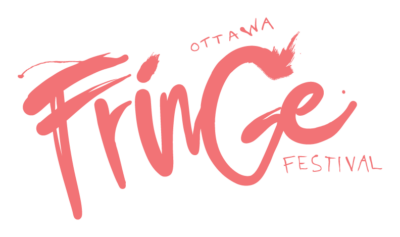Interview with Alex Eddington (Old Growth)
 “The show is based on a true story on Grant Hadwin and the golden spruce,” says Alex Eddington as we chat about his show, Old Growth. I tell him I’d never heard of a golden spruce, or Grant Hadwin. “The golden spruce was a tree that used to stand on the Queen Charlotte Islands; it was a real freak of nature, it shouldn’t have grown. It didn’t have enough chlorophyll, but it lived to be at least 300 years old. The Haida people, the natives there considered it sacred; they had a legend about a little boy being turned into a tree.”
“The show is based on a true story on Grant Hadwin and the golden spruce,” says Alex Eddington as we chat about his show, Old Growth. I tell him I’d never heard of a golden spruce, or Grant Hadwin. “The golden spruce was a tree that used to stand on the Queen Charlotte Islands; it was a real freak of nature, it shouldn’t have grown. It didn’t have enough chlorophyll, but it lived to be at least 300 years old. The Haida people, the natives there considered it sacred; they had a legend about a little boy being turned into a tree.”
In 1997, Grant Hadwin, a former logger with previous schizophrenic episodes, cut down the tree in the middle of the night. He was charged and meant to be tried, but disappeared in a kayak accident. There were many threats on Hadwin’s life.
Alex and his co-star Aura Giles met four years ago – he was her T.A. when they were both taking music at the University of Alberta. “Old Growth is my artistic way of dealing with this story. I came up with two fictional characters who become obsessed with this story; they read the articles about this, it’s an epiphany for them, and they eventually decide to go to the site where the tree has been cut down. So the story takes place on the site of the golden spruce in this bit of old growth forest. We imagine the tree is lying across the front of the stage between us and the audience, we’re playing flute and drums, speaking to this tree. As the hour unfolds, you realize why we’re there and what we hope we’re going to accomplish.”
 “There’s a lot of other stuff thrown into the mix; my character is an amateur magician, and has become really fixated on shamanism. He thinks that by visiting this tree he’s going to trade in the trick magic for a magical ability to speak to the world.”
“There’s a lot of other stuff thrown into the mix; my character is an amateur magician, and has become really fixated on shamanism. He thinks that by visiting this tree he’s going to trade in the trick magic for a magical ability to speak to the world.”
I ask Eddington about the genesis of his show. “I started thinking that this show should be an opera – Grant Hadwin and the Golden Spruce. And I might write an opera about it someday. I originally was going to make it a one-man show, a monologue from my perspective. But I’m working with the same director/dramaturge I worked with last year on the Fugue Code, Alison Williams. She insisted that I have someone else on stage with me, and insisted that person be a woman, and that that person should be the quiet counterpart for all the stuff I wanted to say. All the way along she’s been pushing to make Aura a more important character, the centre that holds my character together. She’s very important to the play; she says a lot less than I do, but what she says speaks volumes. She kind of saves me from myself at the end. We hope.”
 After their first three shows in Ottawa, the cast went back to the rehearsal hall and made some cuts, which emphasized the importance of Aura’s character. Response to the show has been very positive on the ottawafringe website, and CBC’s theatre reviewer, Alvina Ruprecht, gave the show a glowing review. Alex isn’t letting it go to his head. “It’s hard to say yet; we’ve just started. This is a show with some pretty extreme violence in it, with some potentially polarizing views, but the way I write about it and the way my character speaks about environmental stuff is meant to be very common sense. Anybody could develop this argument themselves, you’re meant to do it with him as the play goes on. That this is a controversy I personally think is ridiculous, but I know it is. And that is why I needed to write this play. These things should be part of our daily discussions. So potentially some people are off-put by some of that stuff, by the strength of the message, by the violence at the end, there’s nudity in the show as well. But on the whole, I’m talking to people and people are seeming to like it. I think we have tweaking to do, to keep the balance between these characters. My character can be a little overwhelming.”
After their first three shows in Ottawa, the cast went back to the rehearsal hall and made some cuts, which emphasized the importance of Aura’s character. Response to the show has been very positive on the ottawafringe website, and CBC’s theatre reviewer, Alvina Ruprecht, gave the show a glowing review. Alex isn’t letting it go to his head. “It’s hard to say yet; we’ve just started. This is a show with some pretty extreme violence in it, with some potentially polarizing views, but the way I write about it and the way my character speaks about environmental stuff is meant to be very common sense. Anybody could develop this argument themselves, you’re meant to do it with him as the play goes on. That this is a controversy I personally think is ridiculous, but I know it is. And that is why I needed to write this play. These things should be part of our daily discussions. So potentially some people are off-put by some of that stuff, by the strength of the message, by the violence at the end, there’s nudity in the show as well. But on the whole, I’m talking to people and people are seeming to like it. I think we have tweaking to do, to keep the balance between these characters. My character can be a little overwhelming.”
When people ask Eddington if he’s a tree-hugger, he says “No, but I do hug trees. This show is about taking those things and twisting them, and seeing that there is absolutely no reason there should be scorn for someone who cares about maintaining our ability to eat, breath, reproduce and live in our own habitat. That’s why I say it’s a common-sense argument. If people are feeling that way, I will never be able to change them. If the show is labelled as the eco-show, then I think that’s okay. It is. I’ll take that label. Not in the same way that Crude Love is, it’s a show about eco-terrorism. I think my show is a little more ambiguous about what it’s trying to say.”
Old Growth has just one more performance, tonight at 11:00pm in the Academic Hall.
Previous interviews:
Interview with Gemma Wilcox (Shadows in Bloom)
Interview with August and Frieda Strindberg (Inferno Sonata)
Interview with Shelley Liebembuk and Dylan Ryan (Raven for a Lark)
Interview with Vision Theatre (4Play: One-Acts by David Ives)
Interview with Weeping Spoon productions (Greed)
Interview with Brigette DePape (She Rules With Iron Stix)
Amy Salloway (Circumference)
The Absinthe Collective (A Leave of Absinthe)
Peter Hayes (The Tricky Part) and Greg Landucci (Mr. Fox)
Penny Ashton (MC Hot Pink / Busty Rhymes)
Keir Cutler (Teaching the Fringe)
Celeste Sansregret (Wonderbar!)
Jem Rolls (How I learned to stop worrying and love the mall)




























